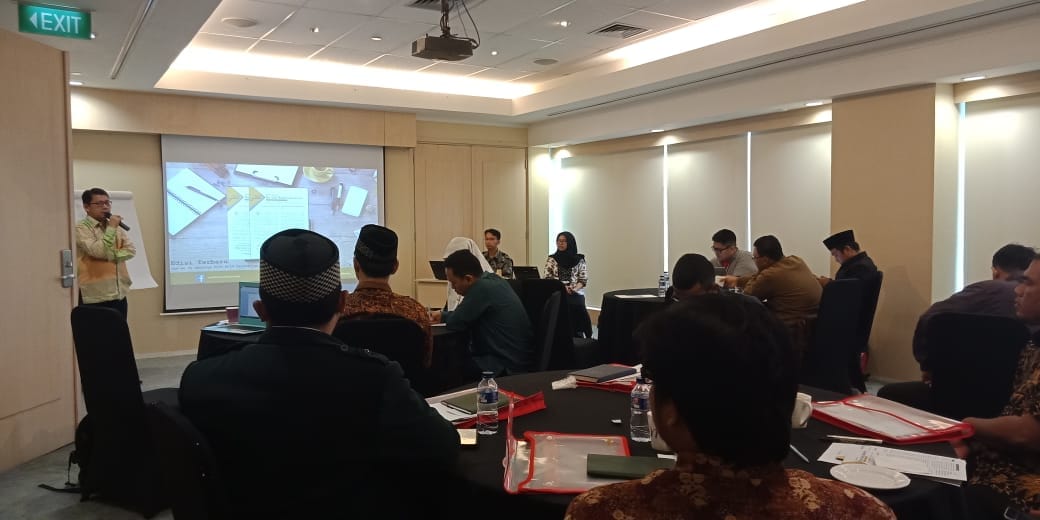Indonesian Young Muslim Bulletin Activities (FGD II)

Millennial Peace Festival Design Workshop by Global Peace Foundation Indonesia
September 12, 2018National Survey on Radicalism among Teachers and Lecturers
September 27, 2018STRENGTHENING THE NARRATIVE LOVE OF THE REPUBLIC OF INDONESIA; Brief Notes on the Discussion of Indonesian Young Muslim Bulletin
Last weekend, September 1, 2018, the editor of the bulletin Young Indonesian Muslims (MMI) held the second focus group discussion (FGD). The warm discussion which was held at the Mercure Hotel Simatupang Lebak Bulus was attended by various groups. Starting from representatives of mosque administrators, student organizations, the Muhammadiyah Youth Association, IPNU, lecturers, preachers, researchers of The Policy Institute, MUI, and PPIM UIN Jakarta. If the FGD I which was held in early July was attended by representatives from Jakarta, Tangerang City, and South Tangerang, then this FGD II was attended by representatives of Bekasi, Depok, and Bogor cities.
The discussion which lasted for 3 hours focused on discussing the Friday bulletin which was circulating in mosques throughout Jabodetabek, especially just before Friday prayers. From that casual discussion, there were at least two interesting things. First, even though access to information through the digital world is increasingly advanced, people are still accustomed to using conventional methods to gain knowledge and knowledge. One of them is through the publication of Friday bulletin in mosques.
What is important for us to pay attention to is the ideology that underpins the content and presentation of each of the bulletins mentioned above. As recognized by several discussion participants, the variety of newsletters in circulation has a variety of styles and content models. However, the existence of several bulletins that are outspoken against Pancasila and the Republic of Indonesia needs attention. For example, although legally Hizbut Tahrir Indonesia (HTI) has been disbanded, until now, the bulletin published by our brothers who are fighting for the caliphate system is still circulating.
Second, discussion participants agreed that it is necessary that the narrative be aligned with the narrative, not by force. At this point, the existence of bulletins that preach Islamic, Indonesian, and modern values need to be initiated and disseminated. With the hope, people will get an alternative narrative and information that is balanced and productive for the life of the nation and state.
For this reason, collaborations and synergies from various groups need to be established and strengthened. Starting from mosque administrators, preachers, the younger generation, to universities and society in general. With the hope, Indonesia will have a strong ideological resilience amidst the incessant transnational ideologies. More than that, we are able to tame and (even) de-ideologize it.
Hopefully




